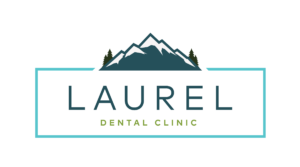In recognition of Children’s Dental Health month, we’ve chosen to highlight the effects of Early Childhood Caries (ECC) or baby bottle decay. ECC is an infectious disease that can affect any child and can begin as early as the eruption of your child’s first tooth (around 6 months old).

The disease process begins with bacteria. As foods enter the oral cavity bacteria break down carbohydrates and sugars and secrete acid on the teeth. The acid drains teeth of the minerals that keep them strong, and if left to continue will progress to cause tooth decay. ECC is the most common chronic childhood disease in the US.
It is 5 times more prevalent than asthma and 4 times more common than early childhood obesity. More than half of all children in our nation have cavities by the time they enter the second grade. ECC is a significant oral and overall health problem in our country.
What’s the Impact?
“They’re just baby teeth, so it doesn’t matter if they have cavities.” This is a common misunderstanding we hear from parents, but it could not be farther from the truth. ECC can cause serious and long-lasting problems for children’s oral health. First and foremost, children who are affected by decay often experience a great deal of pain and discomfort.
This discomfort often causes children to act out and may distract them from learning. They may also find it difficult to pronounce letters and words correctly. In severe cases, a child may even suffer poor nutrient absorption if they are having difficulty with chewing food. When a child loses a baby tooth before the adult tooth is ready to erupt, the proper space for that permanent tooth cannot be maintained without dental intervention.
Suffering from ECC can also have a significant impact on a child’s emotional health. Many children become embarrassed or self-conscious about their teeth and may not even want to smile anymore. So, if ECC is such a prevalent disease that has serious consequences for our children, what can be done to prevent it?
Prevention
As stated earlier, bacteria initiate the disease process of ECC and they feed on the foods we consume, thus nutrition plays an important role in prevention. Unrestricted intake of sugary liquids throughout the day or while in bed, whether bottle or breast-feeding, should be discouraged.
Babies should not be put to bed with a bottle of milk, formula or fruit juice. Good oral health for infants includes gums being wiped with a clean wet washcloth after every feeding. After the eruption of the first tooth, brushing with an age-appropriate toothbrush twice daily is recommended. If you live in an area without fluoridated water, ask your child’s physician or dentist about a fluoride supplement.
Fluoride Toothpaste
Fluoride toothpaste is not recommended until age 3 to be sure children don’t swallow too much. After age 3 or when your child can spit out toothpaste, the switch should be made to a fluoridated option. At Laurel Dental we see children of all ages and we recommend seeing children at or near their second birthday for their first dental check-up, so that if cavities are present they will be diagnosed and treated as early as possible.
It can be as simple as bringing your infant with you to your own appointments and having the dentist do an oral evaluation at that time. This also helps acclimate children to the dentist at a young age.
We would be more than happy to partner with you to ensure your child’s dental wellness. If you would like to schedule your little ones’ first dental visit or they are due for a 6- month check-up, please give us a call at (360)452-9744!


